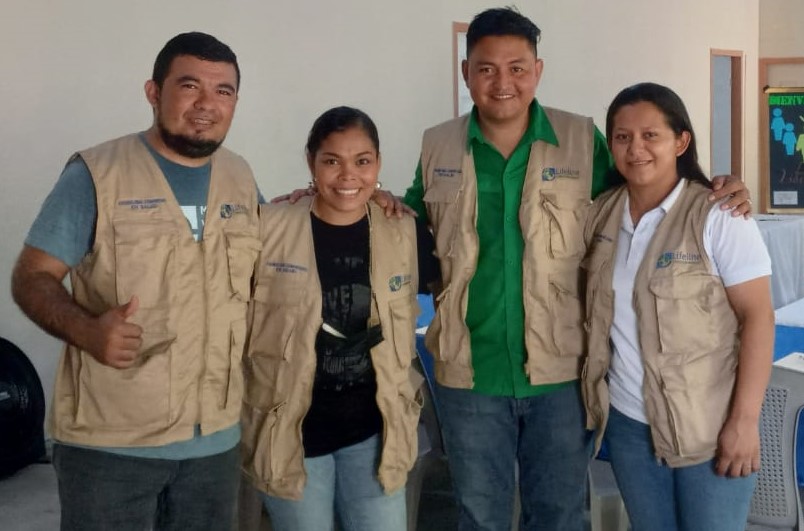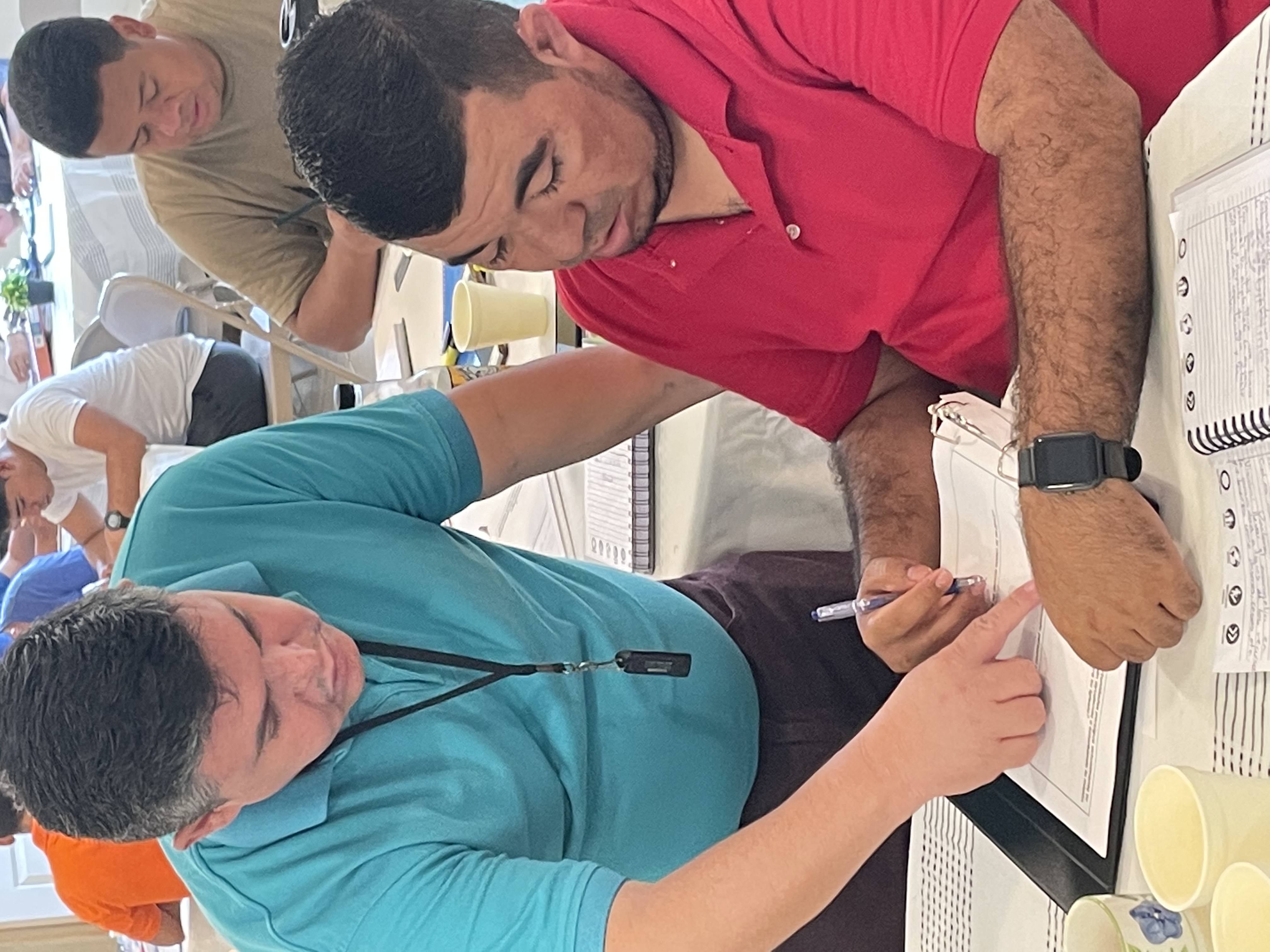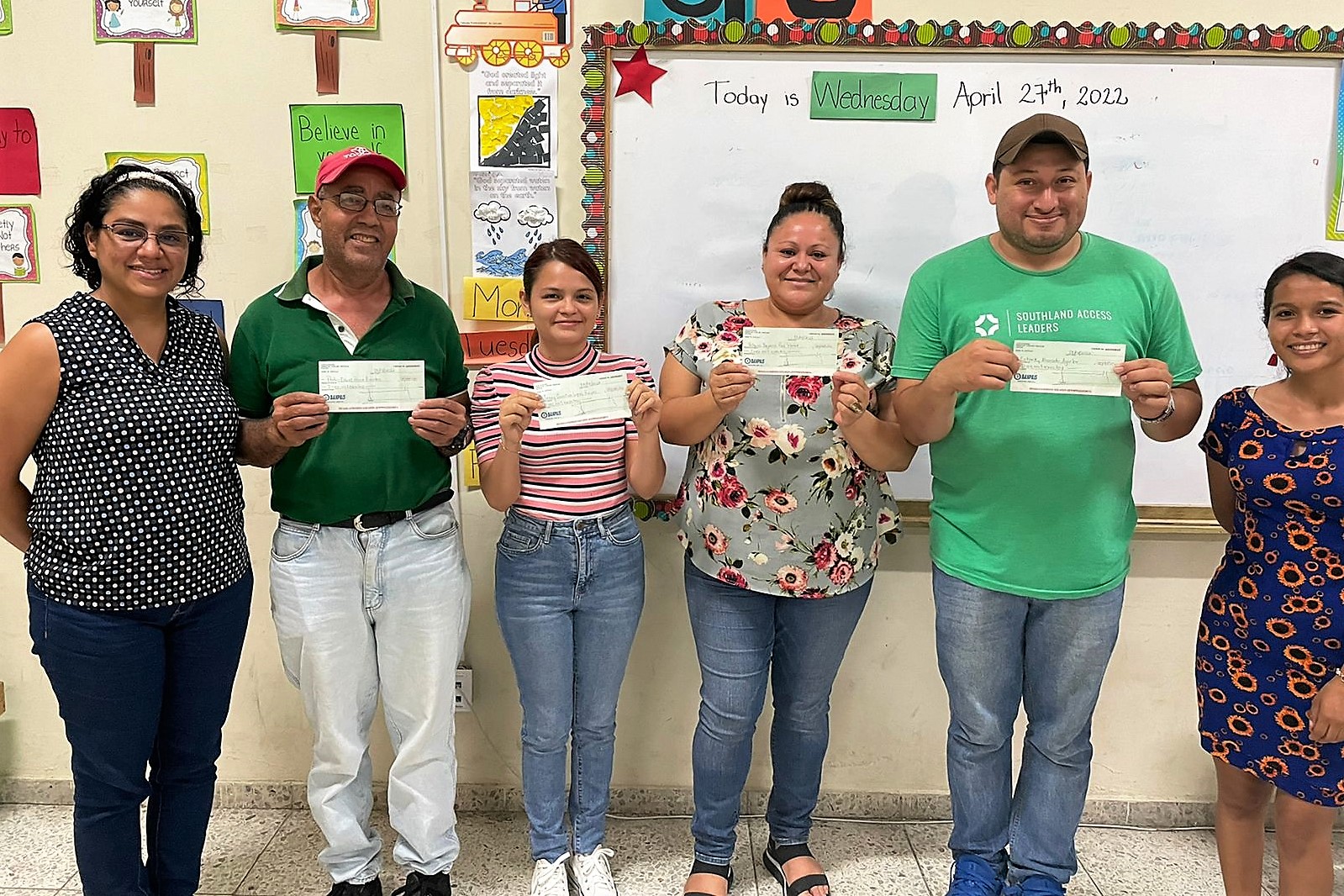Learning What Helps and What Hurts
Written by Joel Augustus (EVP, Global Strategy), Brad Hammond (VP, Field Ministries), and Andy Sims (VP, Development & Empowerment Initiatives)
If you have been following our articles, you have read about our path forward for healthy ministry and the Vision Workshop in Honduras. Through these articles, you may have noticed an intentional focus on healthy ministry and leadership. Some questions might have come to your mind, such as:
-
Why is Lifeline investing so much effort into training their field leaders?
-
Why is Lifeline encouraging them to dream and plan for new financial ventures and entrepreneurial efforts?
-
With the poverty that exists in these fields, how can Lifeline expect them to bring in income to fund their ministries?
-
Can leaders in developing countries be expected to fund ministry on their own?
These are all great questions that we want to answer for you!
Let’s go back a few years…
In 2016, we started to do a really deep dive into reviewing and evaluating our mission and values. Just as (or more) importantly, we reviewed how we make decisions regarding our field work, how we involved our field leaders in our decision-making, and more.
Through honest and transparent sharing from our field leaders, we learned that some of our well-intentioned ministry work had some negative consequences that we had not been aware of. The realizations from this deep dive were eye-opening… and humbling. It took us to our knees. Although positive in many ways, the relief work we were doing in Latin America and the Caribbean eventually morphed into systems of dependency on Lifeline (North America) for some of the local ministries, and worse, a paternalistic relationship with the communities that we care so much about.
This was unacceptable to us. Change was needed in our approach to ministry. And we want you to understand our journey through this.
To put some context to this, it’s important to talk first about the difference between relief work and development work.
Relief Work and Development Work.jpg) Relief work is a familiar term in the nonprofit world. It refers to a short-term intervention, especially in times of man-made or natural disaster, to meet immediate, urgent, basic needs. Relief work may provide supplies, manpower, and funding to deal with the emergency and should typically last 3-6 months.
Relief work is a familiar term in the nonprofit world. It refers to a short-term intervention, especially in times of man-made or natural disaster, to meet immediate, urgent, basic needs. Relief work may provide supplies, manpower, and funding to deal with the emergency and should typically last 3-6 months.
In a healthy ministry model, after the emergency has been addressed and peoples’ basic needs have been met, the focus should then shift toward community development work.
 Development work allows the local people to address the root causes of a community’s vulnerability. It encourages the use of resources that God has already placed in that community: human resources, natural resources, financial resources, etc. When local people learn to recognize and use these God-given resources, it can stimulate a local community to create long-lasting changes that strengthen services and opportunities for its future well-being. Development work requires more time and takes more patience than relief work. Putting a community on the pathway to development often takes several years.
Development work allows the local people to address the root causes of a community’s vulnerability. It encourages the use of resources that God has already placed in that community: human resources, natural resources, financial resources, etc. When local people learn to recognize and use these God-given resources, it can stimulate a local community to create long-lasting changes that strengthen services and opportunities for its future well-being. Development work requires more time and takes more patience than relief work. Putting a community on the pathway to development often takes several years.
Why is it important to distinguish between relief and development work? Because prolonged relief services disempower the local population and lead to a local dependency, which erodes the fibers of human dignity and purpose. When a local community comes to depend upon and even expect certain free services, they can lose sight of their ability to move forward. The ability to dream about building their own economic and social capacity is hampered.
As we at Lifeline evaluated our ministries and through honest insights and feedback from our field leaders, we came to realize that some of our ongoing programs were providing services that were best classified as “relief.” Even though done with good intentions and a right heart, these programs were, in fact, creating unintentional harm.
In some of the communities where we serve, a dependency mindset had taken hold. One example is our child sponsorship program, which over time unintentionally led to jealousy over gifts and expectations of handouts. After listening to advice and cultural insights from our local leaders, we were led to do a major pivot away from child sponsorship and toward a broader partnership model.
We are grateful that our local leaders had the courage to teach us these lessons. Learning how to pivot from relief to development was imperative. We needed to learn to lean on them to teach us. The people and communities we serve deserve that from us.
The more we’ve explored our motives and outcomes, the more committed we have become to shifting into this new, God-honoring posture. This journey has prompted us to shift how we relate to those we serve in the field in specific ways. .jpg) Left to right: Brad Hammond and Joel Augustus, learning from Lisandro Zuniga, El Salvador Country Co-Director
Left to right: Brad Hammond and Joel Augustus, learning from Lisandro Zuniga, El Salvador Country Co-Director
Shifting Postures
From Paternalism TO Partnership
It is easy for us as North Americans to subconsciously assume superiority or control over those with less opportunity. It is an ugly truth. That is never the intent, nevertheless it can happen; however, when we submit ourselves to the way of Jesus, we find a better path forward.
The Gospel levels the ground that we all stand on and places us in a side-by-side partnership with our brothers and sisters around the world. How much better it is to have a posture of partnership and learning from one another!
The people Lifeline has served over the years have always communicated that they are grateful for what we have done in their lives and communities. They love Lifeline. But they've grown in their own right. They’re ready to take on new challenges! They are incredibly gifted leaders, and they understand the local needs and opportunities far better than we, as North Americans, ever can. They have been blessed to be a blessing to others. We are honored to stand by their side as they reach higher and further.
From Projects TO Creators
Those living in poverty often are not seen as individuals, but instead get labeled by their circumstances. They become “projects” for others to fix rather than be seen as children made in God’s image. By affirming everyone’s identity in Christ, we want to recognize and develop every person’s uniqueness, to empower creativity within their communities, and to mobilize them to have a Kingdom impact.
 It has been exciting to see this new identity emerge among our leaders, one person at a time. They still struggle at times seeing themselves beyond their circumstances. And the economic situation around the world has gotten much worse since we started making this shift. Yet, hope is emerging. We see it in the small but steady victories, the unexpected outcomes, and best of all, the satisfied, accomplished smiles on their faces!
It has been exciting to see this new identity emerge among our leaders, one person at a time. They still struggle at times seeing themselves beyond their circumstances. And the economic situation around the world has gotten much worse since we started making this shift. Yet, hope is emerging. We see it in the small but steady victories, the unexpected outcomes, and best of all, the satisfied, accomplished smiles on their faces!
From Handouts TO Investments
Empowerment is at the core of this shift in our focus. When we invest in people instead, multiplication happens. Prolonged handouts feel good to the giver but unintentionally strip away dignity from the receiver, creating an unhealthy culture of dependency.
At Lifeline, our sustainability efforts are about investment and multiplication. It is about affirming the God-given vision of local residents for their own communities. It is about freeing them from dependency and giving the Holy Spirit space to do his work in and through his people.
From Owner/Operator TO Coach/Investor
Lifeline has historically been the owner/operator of the ministries we helped begin (churches, schools, medical clinics, etc.). This means that our North American leaders carried the decision-making and financial burdens of the ministries. Local field leaders were never truly free to carry the full weight of responsibility, that is, to make and own decisions and to leverage local resources to cover their operating costs. In some ways, with these responsibilities being on the shoulders of North American staff, this model might be seen as a blessing to our field leaders; however, over time, this model actually stifles development and growth.
To illustrate this, let’s think about how this same dynamic exists in our families as our children grow older. If we as parents never release them to wrestle with tough decisions, and even make some mistakes and poor choices along the way, they will never grow into the mature adults that God designed them to become. Similarly, if they never have to provide financially for themselves, our children are robbed of the dignity that comes with investing blood, sweat, and tears into something that is important to them. And, they never develop the problem-solving skills needed to thrive if we as parents are always their solution.
In our new role as coach, we are shifting away from being the decision-makers and toward being advisors to our field leaders, helping connect them to people or resources. And in our role as investor, we are working to financially support their decisions and plans that will build their capacity to thrive on their own. As an example, instead of Lifeline perpetually paying a field church's electric bill, we may fund a portion of a solar panel system or perhaps fund the building and launch a church daycare center which will generate local income to pay the church’s electric and other operating expenses.
We believe that these many shifts will empower the local leadership and local Lifeline churches to create sustainable transformation within their own communities.
A Few Exciting Initiatives
A few exciting empowering initiatives are already under way. You might recognize in them the shifts in posture that we’ve shared with you!:
-
“Coaching networks” are helping our Latin American leaders learn about leadership, project planning, metrics, sustainability, and more. As they learn these concepts, they in turn are raising up the next generation of young leaders in these principles too. In this way, our fields’ work toward sustainability is guided by their culture and norms, not by ours in North America. In Haiti, coaching networks will be launched in 2023.
-
In early October, our Latino field leaders began a 7-week course called “Gospel Foundations,” in Spanish. They will then be equipped to lead the same course for their mentees, pastors, and other leaders in their country. A Haitian Creole version will be launched in 2023.
-
For visiting mission trip teams, our local leaders determine how to best involve the visitors in ministry work now. In our former model for trips, the local leaders had less input into the activity choices.
-
Each of our field leaders have access to a benevolent fund which they can draw from to help local individuals with acute one-time needs. This gives the leaders freedom to serve their communities without having to ask permission or request funds from North America
-
 To empower local Christian small business owners to build their businesses in a way that meets local need and demand, our local leaders in Honduras can invite them to participate in an economic empowerment training program, providing to graduates of the program microloans to establish or expand their businesses.
To empower local Christian small business owners to build their businesses in a way that meets local need and demand, our local leaders in Honduras can invite them to participate in an economic empowerment training program, providing to graduates of the program microloans to establish or expand their businesses.
Conclusion
We believe that by empowering our field leaders to truly lead, the communities can win the fight against poverty because they will have developed the services and capitalized on local resources to meet local needs.
We hope that these explanations help you to better understand the direction of Lifeline’s ministries and our determination to develop and empower others. In this way, dignity is restored. And hope is ushered in.
We covet your prayers as we make these deep philosophical and practical changes in our ministry.
Recommended Reading:
-
When Helping Hurts: How to Alleviate Poverty Without Hurting the Poor… and Yourself, by Steve Corbett
-
Toxic Charity: How Churches and Charities Hurt Those They Help (and How to Reverse It), by Robert Lupton
-
Multiplying Light and Truth Through Community Health Evangelism, by Stan Rowland
- Standing With the Vulnerable: A Curriculum for Transforming Lives and Communities, by Gil Odendaal

